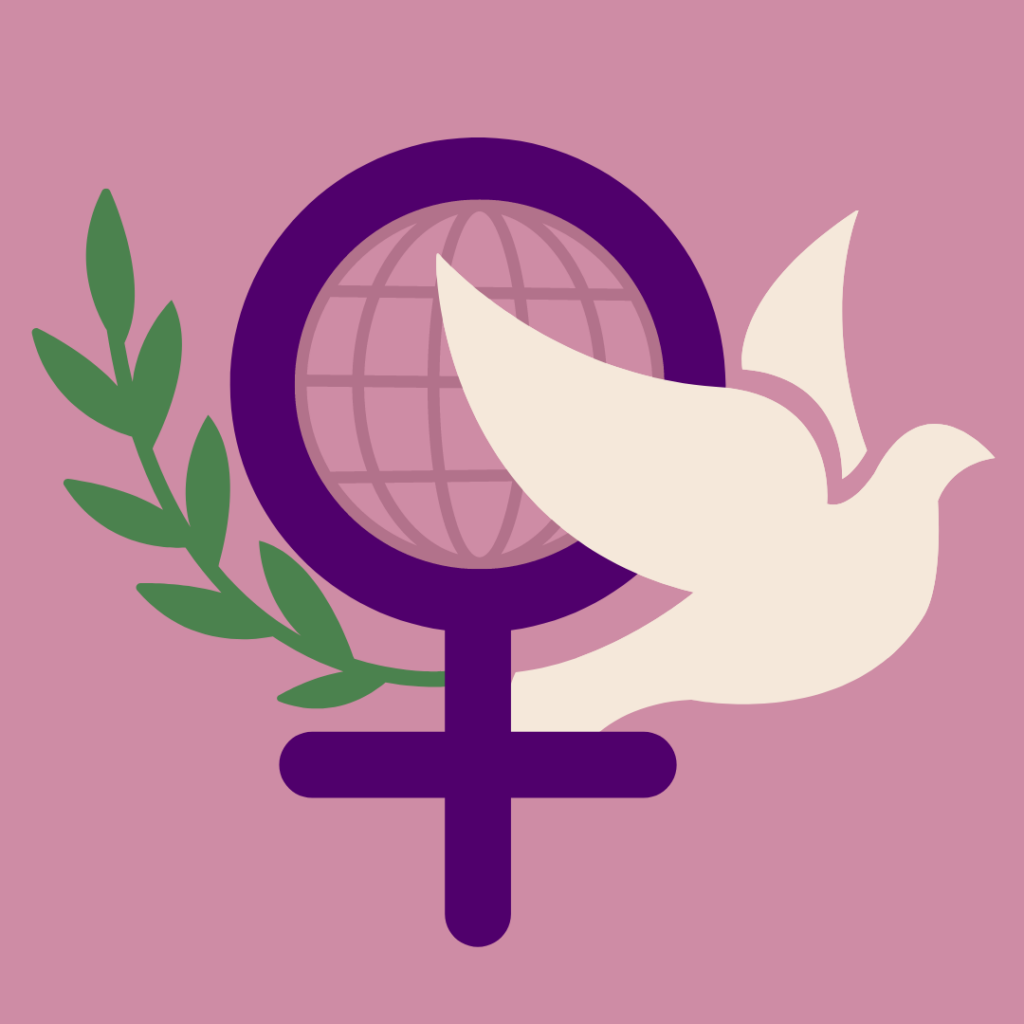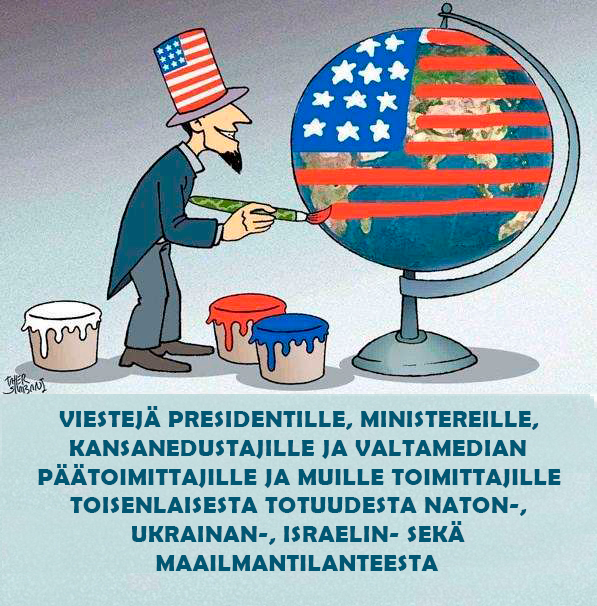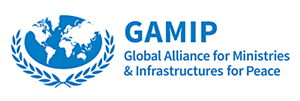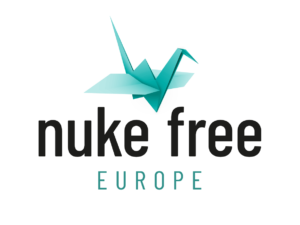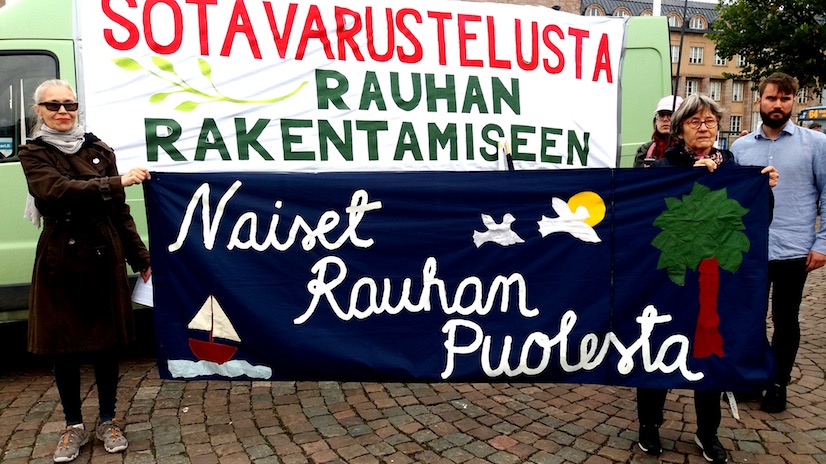
VÄHENTÄKÄÄ SOTILASMENOJA 2 % KAIKISSA MAISSA JOULU JA UUDEN VUODEN TERVEISET SUOMEN PRESIDENTILLE, HALLITUKSELLE JA KANSANEDUSTAJILLE
17.12.2021
Yli 50 Nobel palkinnon saajaa sekä kymmeniätuhansia muuta tunnettua ja vähemmän tunnettua ihmistä ympäri maailmaa
https://peace-dividend.org/
Yli 50 Nobel palkinnon saajaa sekä kymmeniätuhansia muuta tunnettua ja vähemmän tunnettua ihmistä ympäri maailmaa ilahduttaa maailman kansalaisia rauhan viestillä – vetoomuksella maailman kaikille päättäjille:
”Vähentäkää sotilasmenoja 2 % kaikissa maissa. Säästäkää 1 biljoona Yhdysvaltain dollaria viiden vuoden aikana planeetan hätätilanteita vastaan taistelemiseksi.”
” Maailman sotilasmenot ovat kaksinkertaistuneet vuodesta 2000. Ne lähestyvät 2 biljoonaa Yhdysvaltain dollaria vuodessa ja kasvavat kaikialla maailmassa. (Stockholm International Peace Research Institute)…
Yksittäisiä hallituksia painostetaan lisäämään sotilasmenoja, koska muut tekevät niin. Palautemekanismi ylläpitää kierteistä kilpavarustelua – valtavaa resurssien tuhlausta, joita voitaisiin käyttää paljon viisaammin. Aiemmilla kilpavarusteluilla on usein ollut sama lopputulos: tappavia ja tuhoisia konflikteja.
Meillä on ihmiskunnalle yksinkertainen ehdotus: kaikkien YK:n jäsenmaiden hallitusten tulisi neuvotella yhteisesti sotilasmenojen vähentämisestä kahdella prosentilla joka vuosi viiden vuoden ajan.
Ehdotuksen perustelu on yksinkertainen:
- Kun vastakkaiset valtiot vähentävät sotilasmenoja samanverran kunkin maan turvallisuus kasvaa, samalla kun pelote ja tasapaino säilyvät.
- Sopimus auttaa vähentämään vihamielisyyttä ja siten vähentämään sodan riskiä.
- Saadaan valtavia resursseja käyttöön – jopa 1 biljoonan Yhdysvaltain dollaria ”rauhanosinko” vuoteen 2030 mennessä.
Ehdotamme, että puolet tämän sopimuksen vapautuvista resursseista kohdennetaan YK:n valvonnassa olevalle maailmanlaajuiselle rahastolle, jonka tehtävänä on käsittellä ihmiskunnan vakavia yhteisiä ongelmia: pandemiat, ilmastonmuutos ja äärimmäinen köyhyys.
Toinen puoli jää yksittäisten hallitusten käyttöön. Kaikilla mailla on siten merkittäviä uusia resursseja. Osa näistä voidaan suunnata sotilasteollisuuden vahvaa tutkimuskapasiteettia kipeästi tarvittaviin rauhanomaisiin sovelluksiin.”
Historia osoittaa, että sopimukset aseiden leviämisen rajoittamiseksi ovat saavutettavissa: SALT- ja START-sopimusten ansiosta Yhdysvallat ja Neuvostoliitto ovat vähentäneet ydinasearsenaaliaan 90 prosentilla 1980-luvun jälkeen. Sellaiset neuvottelut voivat onnistua, koska ne ovat rationaalisia: jokainen toimija hyötyy vastustajiensa aseistuksen vähentämisestä, samoin koko ihmiskunta.
Ihmiskunta kohtaa riskejä, jotka voidaan välttää vain yhteistyöllä.
Tehkäämme yhteistyötä sen sijaan, että taistelemme keskenämme.
Vetoomus ja allekirjoitukset: https://peace-dividend.org/
Vetoomus englanninkielisenä ja allekirjoitukset myös alla:
Rauhanomaista joulua ja turvallisempaa, kestävämpää sekä tasavertaisempaa tulevaisuutta toivottaen
Naiset Rauhan Puolesta, yhdyshenkilö Lea Launokari – [email protected]
Naiset Atomivoimaa Vastaan, yhdyshenkilö Ulla Klötzer – [email protected]
The appeal
Reduce military spending by 2% in all countries. Save 1 trillion USD over 5 years to fight planetary emergencies.
World military spending has doubled since 2000. It is approaching 2 trillion US dollars per year, and is increasing in all regions of the world (*).
Individual governments are under pressure to increase military spending because others do so. The feedback mechanism sustains a spiralling arms race – a colossal waste of resources that could be used far more wisely. Past arms races have often had the same outcome: deadly and destructive conflicts.
We have a simple proposal for humankind: the governments of all UN member-states should negotiate a joint reduction of their military expenditure by 2% every year for five years.
The rationale for the proposal is simple:
- Adversary nations reduce military spending, so the security of each country is increased, while deterrence and balance are preserved.
- The agreement contributes to reducing animosity, thereby decreasing the risk of war.
- Vast resources – a ‘peace dividend’ of as much as 1 trillion USD by 2030 – are made available.
We propose that half of the resources freed up by this agreement are allocated to a global fund, under UN supervision, to address humanity’s grave common problems: pandemics, climate change, and extreme poverty.
The other half remains at the disposal of individual governments. All countries will therefore have significant new resources. Some of these can be used to redirect the strong research capacities of military industries towards urgently needed peaceful applications.
History shows that agreements to limit the proliferation of weapons are achievable: thanks to the SALT and START treaties, the United States and the Soviet Union have reduced their nuclear arsenals by 90% since the nineteen eighties. Such negotiations can succeed because they are rational: each actor benefits from its adversaries’ armaments reduction, and so does humanity as a whole.
Humankind faces risks that can only be averted through cooperation.
Let us cooperate, instead of fighting among ourselves.
Over 50 Nobel laureates and presidents of learned societies.
- Hiroshi Amano (Nobel Physics)
- Peter Agre (Nobel Chemistry)
- David Baltimore (Nobel Physiology or Medicine)
- Barry C. Barish (Nobel Physics)
- Martin L. Chalfie (Nobel Chemistry)
- Steven Chu (Nobel Physics)
- Robert F. Curl Jr. (Nobel Chemistry)
- Johann Deisenhofer (Nobel Chemistry)
- Jacques Dubochet (Nobel Chemistry)
- Gerhard Ertl (Nobel Chemistry)
- Joachim Frank (Nobel Chemistry)
- Sir Andre K. Geim (Nobel Physics)
- Sheldon L. Glashow (Nobel Physics)
- Carol Greider (Nobel Physiology or Medicine)
- Harald zur Hausen (Nobel Physiology or Medicine)
- Dudley R. Herschbach (Nobel Chemistry)
- Avram Hershko (Nobel Chemistry)
- Roald Hoffmann (Nobel Chemistry)
- Robert Huber (Nobel Chemistry)
- Louis J. Ignarro (Nobel Physiology or Medicine)
- Brian Josephson (Nobel Physics)
- Takaaki Kajita (Nobel Physics)
- Tawakkol Karman (Nobel Peace)
- Brian K. Kobilka (Nobel Chemistry)
- Roger D. Kornberg (Nobel Chemistry)
- Yuan T. Lee (Nobel Chemistry)
- Jean-Marie Lehn (Nobel Chemistry)
- John C. Mather (Nobel Physics)
- Eric S. Maskin (Nobel Economics)
- May-Britt Moser (Nobel Physiology or Medicine)
- Edvard I. Moser (Nobel Physiology or Medicine)
- Erwin Neher (Nobel Physiology or Medicine)
- Sir Paul Nurse (Nobel Physiology or Medicine and Past President, Royal Society)
- Giorgio Parisi (Nobel Physics)
- Jim Peebles (Nobel Physics)
- Sir Roger Penrose (Nobel Physics)
- Edmund S. Phelps (Nobel Economics)
- John C. Polanyi (Nobel Chemistry)
- H. David Politzer (Nobel Physics)
- Sir Venki Ramakrishnan (Nobel Chemistry and Past President, Royal Society)
- Sir Peter Ratcliffe (Nobel Physiology or Medicine)
- Sir Richard J. Roberts (Nobel Physiology or Medicine)
- Michael Rosbash (Nobel Physiology or Medicine)
- Carlo Rubbia (Nobel Physics)
- Randy W. Schekman (Nobel Physiology or Medicine)
- Gregg Semenza (Nobel Physiology or Medicine)
- Robert J. Shiller (Nobel Economics)
- Stephen Smale (Fields Medal)
- Sir Fraser Stoddart (Nobel Chemistry)
- Horst L. Störmer (Nobel Physics)
- Thomas C. Südhof (Nobel Physiology or Medicine)
- Jack W. Szostak (Nobel Physiology or Medicine)
- Olga Tokarczuk (Nobel Literature)
- Srinivasa S. R. Varadhan (Abel Prize)
- Sir John E. Walker (Nobel Chemistry)
- Torsten Wiesel (Nobel Medicine)
- Mohamed H. A. Hassan (President, World Academy of Sciences)
- Annibale Mottana (President, Italian National Academy of the Sciences)
- Roberto Antonelli (President, Italian Lincean Academy)
- Patrick Flandrin (President, French Academy of Sciences)
- Anton Zeilinger (President, Austrian Academy of Sciences)
- Carlo Rovelli and Matteo Smerlak (Organizers)
His Holiness the Dalai Lama (Nobel Peace) has expressed appreciation and support for the initiative.
35 000 other signatures as of December 17, 2021

